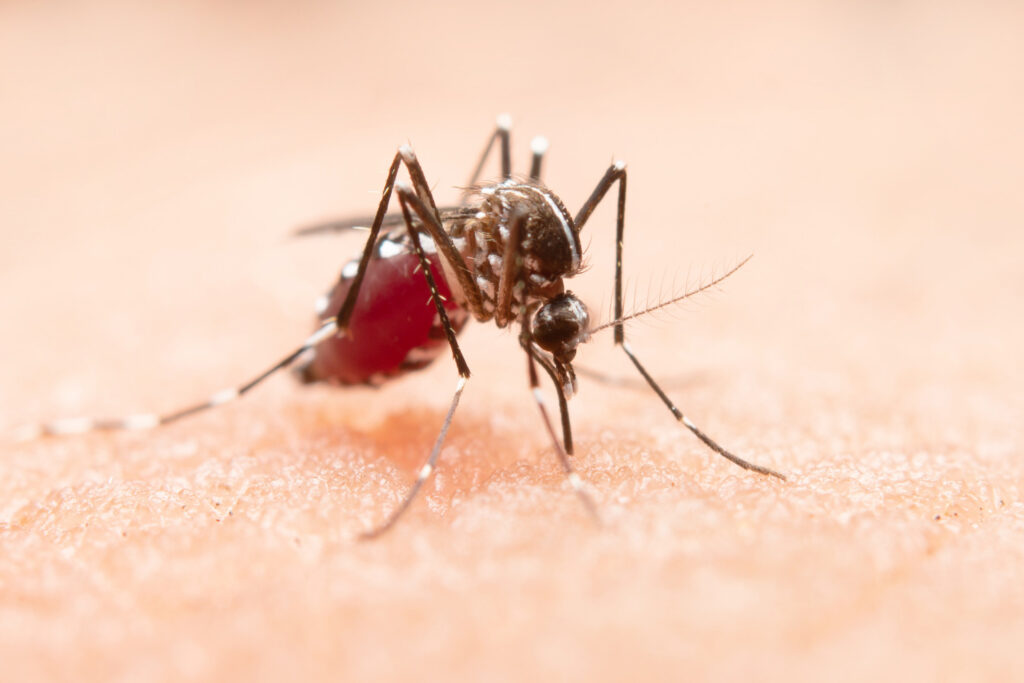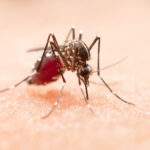
In this article
Malaria is a significant and sometimes fatal infectious disease caused by a parasite transmitted through mosquito bites. The disease remains a global public health issue, with an estimated 247 million cases reported in 2021 alone, resulting in over 600,000 deaths.
Geographical Prevalence
Mosquitoes that transmit malaria thrive in tropical regions, such as Central America, sub-Saharan Africa, and parts of Asia. However, the United States records nearly 2,000 malaria cases annually, primarily linked to travel to these tropical areas.
Symptoms of Malaria
Malaria symptoms typically emerge 10 to 15 days after being bitten by an infected mosquito. Common symptoms resemble those of the flu and include:
- Fever
- Chills
- Headache
- Muscle pain
- Fatigue
- Nausea
- Vomiting
- Diarrhea
In severe cases, symptoms can escalate to:
- Extreme fatigue
- Seizures
- Loss of consciousness
- Breathing difficulties
- Abnormal bleeding
- Dark or bloody urine
- Jaundice (yellowing of the skin and eyes)
The World Health Organization advises seeking immediate medical attention if severe symptoms occur.
Causes of Malaria
Malaria is caused by a parasite that infects mosquitoes, which then transfer the disease to humans through bites. It is most prevalent among people living in tropical climates where these mosquitoes are widespread. Certain groups are at higher risk of severe symptoms, including:
- Young children
- Pregnant individuals
- People with HIV/AIDS
- Residents in areas with limited healthcare access
Diagnosis of Malaria
Prompt diagnosis is crucial to prevent the disease from progressing to a life-threatening stage. When consulting a healthcare provider, they will review your medical history and recent travels, perform a physical examination, and order blood tests. Specific malaria tests include:
- Microscopic diagnosis: Examining a blood sample under a microscope to detect parasites, considered the gold standard.
- Rapid diagnostic tests (RDTs): Using a blood sample on a test card to provide results within 15 minutes, useful in settings without laboratory access.
In the U.S., malaria diagnoses are uncommon, which can lead to delays in identification and treatment. It’s essential to inform your healthcare provider if you’ve traveled to malaria-endemic areas and are experiencing symptoms.
Treatment of Malaria
Malaria is typically treated with medication, which may be taken orally or administered via injection. Common medications include:
- Coartem (artemether-lumefantrine)
- Aralen (chloroquine)
- Jasoprim (primaquine)
Preventing Malaria
Several strategies can help prevent malaria, particularly when traveling to endemic areas:
- Vaccination: The Mosquirix (RTS,S/AS01) vaccine for children.
- Mosquito avoidance: Using bed nets, insect repellent, wearing long sleeves and pants, and keeping doors and windows closed.
- Prophylactic medications: Consulting with a healthcare provider about taking antimalarial drugs before and after travel.
Complications of Malaria
Untreated malaria can lead to severe complications, including:
- Kidney failure
- Heart failure
- Seizures
- Mental confusion
- Coma
- Anemia
- Acute respiratory distress syndrome (ARDS)
These complications can be fatal, underscoring the importance of early medical intervention.
Living with Malaria
While malaria is a serious disease, it is treatable. Awareness and prompt medical attention are vital, especially after traveling to high-risk areas. Ensuring early diagnosis and treatment can prevent severe health outcomes and improve recovery chances.
For more detailed information, consult reliable sources such as the World Health Organization or your local healthcare provider











